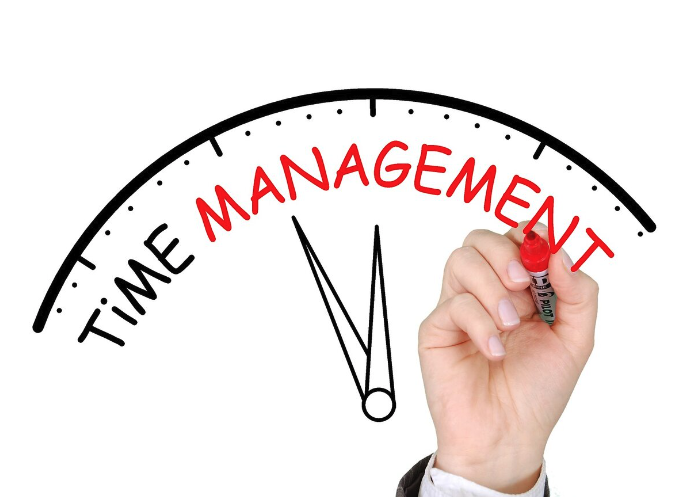As a leader, your time is a valuable resource that directly impacts your productivity and the success of your team. Juggling multiple responsibilities and obligations can be overwhelming, but effective time management is the key to staying organized and boosting efficiency. Today, we will explore ten essential time management tips specifically tailored for busy leaders. By implementing these strategies, you can optimize your schedule, reduce stress, and achieve greater productivity in both your personal and professional life.

Prioritize and Delegate Tasks
One of the most crucial aspects of time management is setting priorities. Identify the tasks that require your immediate attention and focus on completing those first. Delegate non-essential tasks to competent team members, empowering them to take ownership and freeing up your time for high-impact responsibilities. By sharing the workload, you can increase efficiency and achieve better results collectively.
Set Clear Goals and Deadlines
Establishing clear goals and deadlines provides a sense of direction and urgency. Break down larger projects into smaller, manageable tasks with specific deadlines. This approach helps you stay on track and prevents procrastination. Additionally, clearly defined objectives allow you to evaluate progress, make necessary adjustments, and celebrate achievements.
Master the Art of Saying No
Being a busy leader means numerous requests for your time and attention. While it is essential to be accessible and supportive, it is equally crucial to know when to say no. Evaluate each request carefully, considering its alignment with your goals and priorities. Politely decline tasks that don’t align with your objectives or delegate them to others who can handle them effectively.
Plan and Schedule Wisely
Invest time in planning and organizing your schedule to optimize productivity. Use tools like calendars or time management apps to allocate specific time slots for different tasks. Block out uninterrupted periods for focused work and set aside time for meetings, collaboration, and personal well-being. A well-structured schedule ensures that you allocate time for essential activities while avoiding excessive multitasking and reducing stress.
Minimize Distractions
In today’s digital age, distractions are abundant and can severely impact your efficiency. Identify common distractions such as social media, email notifications, or excessive meetings, and take measures to minimize their influence. Set boundaries by scheduling specific times for checking emails and notifications, and consider using productivity apps that block or limit access to distracting websites during designated work periods.
Embrace Technology and Automation
Leverage technology to streamline repetitive or time-consuming tasks. Explore project management tools, automation software, or communication platforms to simplify collaboration, increase efficiency, and reduce manual effort. By automating routine processes, you can free up valuable time for strategic decision-making and higher-level responsibilities.
Practice Effective Communication
Clear and concise communication is essential for efficient time management. Ensure that instructions and expectations are communicated effectively to avoid misunderstandings and prevent wasted effort. Foster a culture of open communication within your team, encouraging feedback and promoting collaboration. Effective communication minimizes the need for follow-ups, clarifications, and unnecessary delays.
Take Breaks and Practice Self-Care
While it may seem counterintuitive, taking regular breaks is essential for maintaining productivity and avoiding burnout. Schedule short breaks between tasks or dedicate a specific time for relaxation. Engage in activities that help you recharge, such as meditation, physical exercise, or spending time with loved ones. Prioritizing self-care ensures that you remain energized and focused throughout the day.
Continuously Learn and Improve
Invest in personal and professional development to enhance your time management skills. Stay updated on the latest techniques and tools that can boost efficiency. Attend relevant workshops, read books or articles, and learn from other successful leaders. By constantly seeking growth and improvement, you can refine your time management strategies and become more effective in your role.
Reflect and Evaluate
Regularly evaluate your time management practices to identify areas for improvement. Reflect on your daily, weekly, and monthly routines to determine what worked well and what needs adjustment. Seek feedback from your team and trusted colleagues to gain insights into your time management strengths and weaknesses. Adjust your strategies accordingly to optimize your productivity and efficiency continually.
Conclusion
Time management is a critical skill for busy leaders aiming to maximize efficiency and achieve their goals. By implementing these ten tips, including prioritization, delegation, goal setting, and minimizing distractions, you can take control of your schedule and enhance your productivity. Remember, effective time management is a continuous process that requires self-reflection, adaptation, and a commitment to ongoing improvement. Embrace these strategies, and watch your efficiency soar as you become a master of time.
Resources on Time Management
Please find here a list of books from Amazon on Time Management.


